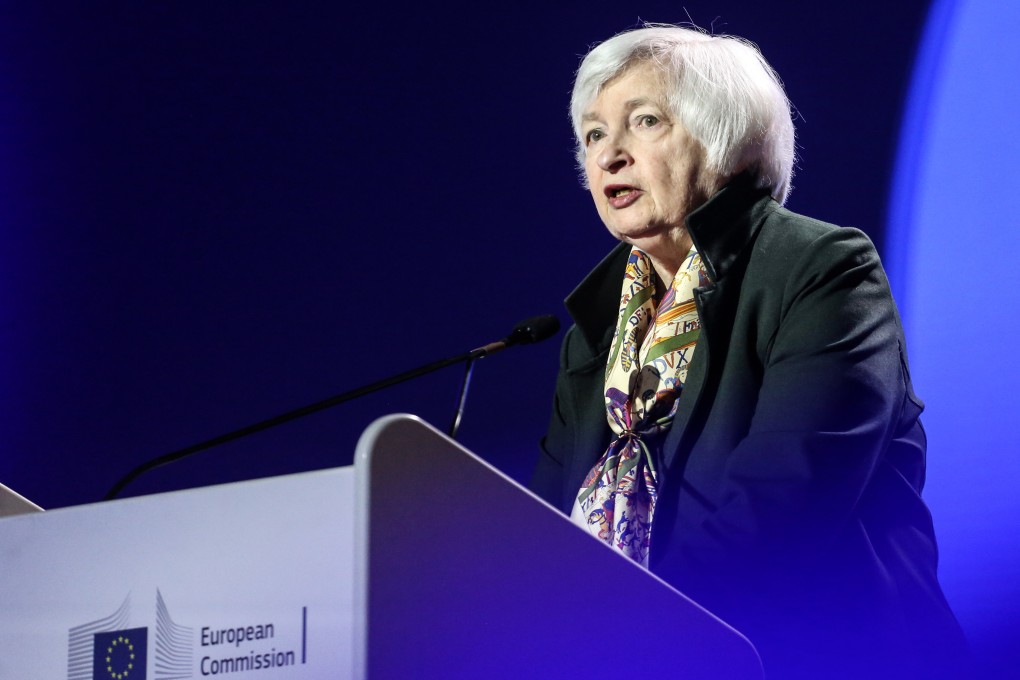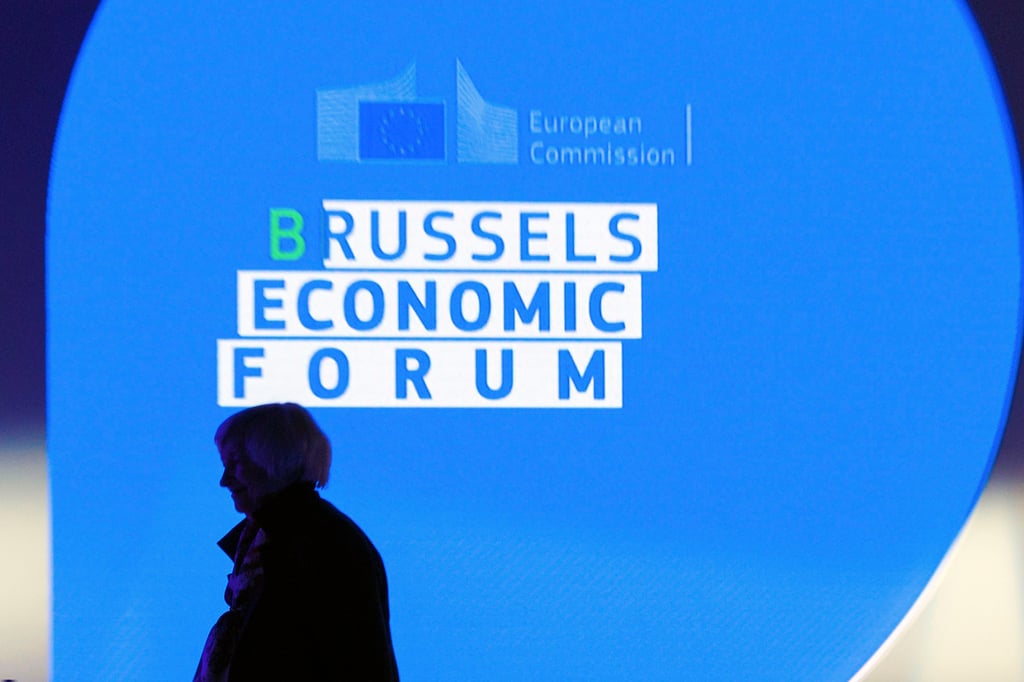Unite with Washington against China, US treasury chief urges Europe
- Janet Yellen said Western democracies had become ‘too vulnerable’ and ‘should all aspire to encouraging China to drop objectionable practices’
- ‘China is more likely to respond favourably if it cannot play one of us off against another,’ the US treasury secretary told the Brussels Economic Forum

“We have a common interest in incentivising China to refrain from economic practices that have disadvantaged us all,” Yellen said in a speech in Brussels on Tuesday. “These practices range from those affecting trade and investment, to development and climate policies, to approaches to provide debt relief to countries facing unsustainable debt burdens.”
Yellen said there’s “a strong case for pursuing common goals jointly, not unilaterally.” In that way, “China is more likely to respond favourably if it cannot play one of us off against another,” she said.

Yellen, delivering an annual lecture at the Brussels Economic Forum, said “We should all aspire to encouraging China to drop objectionable practices. If we can do so, we will stand a better chance of competing with China on a level playing field, which will benefit our businesses and consumers.”